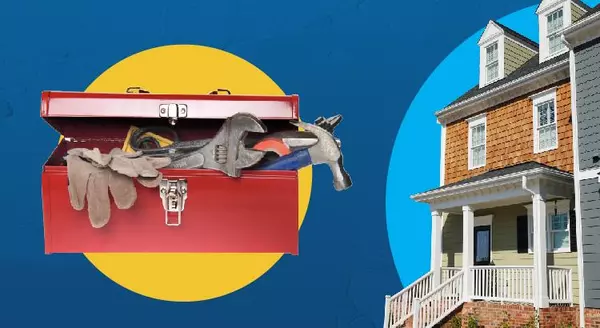394 Lincoln Highway Chicago Heights, IL 60411
UPDATED:








5,305 SqFt
5,305 SqFt
Key Details
Property Type Commercial
Sub Type Multi Family 5+
Listing Status Active Under Contract
Purchase Type For Sale
Square Footage 5,305 sqft
Price per Sqft $28
MLS Listing ID 11834841
Year Built 1926
Annual Tax Amount $14,809
Tax Year 2021
Lot Dimensions 118X128
Property Description
Location
State IL
County Cook
Zoning COMMR
Interior
Cooling Window Unit(s)
Fireplaces Number 2
Fireplace Y
Exterior
View Y/N true
MORTGAGE CALCULATOR
We would love to talk to you about this property
394 Lincoln Highway

“Let us guide you through the real estate process of your journey from start to finish. Fill out the form to have an experienced broker contact you to discuss a no-obligation consultation. ”
GET MORE INFORMATION
Real Estate News, Tips & How-To Articles

How Co-Buying a Home Helps with Affordability Today
Buying a home in today’s market can feel like an uphill battle – especially with home prices and mortgage rates putting pressure on your budget. If you’re feeling stuck, co-buying could be one way to help you get your foot in the door. Freddie Mac says:“If you are an aspiring homeowner, buying a home with your family or friends could be an option.”But there are some things you'll want to consider first. Let’s explore why co-buying is gaining popularity right now among some buyers and see if it may make sense for you too.What Is Co-Buying?Co-buying means buying a home with someone like a friend, sibling, or even a group of people. And, with today’s high home prices and mortgage rates, it’s an option more people are turning to. According to a survey done by JW Surety Bonds, nearly 15% of Americans have already co-purchased a home with someone, and another 48% would consider doing it.Why Consider Co-Buying?The same survey also asked people about the perks of co-buying a home. Here are some of the top responses (see graph below):Sharing Costs (67%): From saving for a down payment to managing monthly payments, buying a home is a big financial step. When you co-buy, you split these costs, making it easier to afford a home.Affording a Better Home (56%): By pooling your financial resources, you may also be able to afford a larger or higher-quality home than you could have on your own. This may mean getting that extra bedroom, a bigger backyard, or living in a more desirable neighborhood.Investment Opportunity (54%): Co-buying a home can also be an investment. You could buy a house with someone so you can rent out, which could help generate passive income.Sharing Responsibilities (48%): Owning a home comes with a lot of responsibilities, including maintenance and upkeep and more. When you co-buy, you share these commitments, which can lighten the load for everyone involved.Other Co-Buying ConsiderationsWhile co-buying has its benefits, there’s something else you need to consider before deciding if this approach is right for you. As Rocket Mortgage says:“Buying a house with a friend or multiple friends might be a great way for you to achieve homeownership, but it’s not a decision you should make lightly. Before diving in, make sure you understand the financial and logistical hurdles you’ll face, as well as the human and emotional elements that might affect the purchase or, more importantly, your relationship.”Basically, make sure you and your co-buyer are on the same page about things like how costs will be split, who will handle what responsibilities, and what will happen if one of you wants to sell your share of the home in the future. Leaning on an expert can help you weigh the pros and cons to make that conversation easier.Bottom LineIf you're looking to get your foot in the door but are having a tough time at today's rates and prices, co-buying could be an option to make your move happen. But, it’s important to plan carefully and make sure that all parties are clear on the details. To figure out if co-buying makes sense for you, connect with a local real estate agent.

Why Today’s Mortgage Debt Isn’t a Sign of a Housing Market Crash
One major reason why we’re not heading toward a foreclosure crisis is the high level of equity homeowners have today. Unlike in the last housing bubble, where many homeowners owed more than their homes were worth, today’s homeowners have far more equity than debt.That’s a big part of the reason why even though mortgage debt is at an all-time high, this isn’t 2008 all over again. As Bill McBride, Housing Analyst for Calculated Risk, explains:“With the recent house price increases, some people are worried about a new housing bubble – but mortgage debt isn’t a concern . . .”Today’s homeowners are in a much stronger position than ever before. So, let’s break it down and see why today’s mortgage debt isn’t anything to fear.More Equity, Less Risk of ForeclosuresAccording to the St. Louis Fed, total homeowner equity is nearly triple the total mortgage debt today (see graph below):High equity makes it less likely for homeowners to face foreclosure because they have more options. If someone struggles to make their mortgage payments, they could potentially sell their house and still come out ahead thanks to their built-up equity.Even if home values were to dip, most homeowners would still have a comfortable cushion of equity. That’s a big contrast to the 2008 crisis, where many homeowners were underwater on their mortgages and had few options to avoid foreclosure.Delinquency Rates Are Still Near Historic LowsAnother reassuring sign is that, according to the NY Fed, the number of mortgage payments that are more than 90 days late is still near historic lows (see graph below):This is partly due to a variety of programs designed to help homeowners through temporary hardships. As Marina Walsh, VP of Industry Analysis at the Mortgage Bankers Association (MBA), says:“. . . servicers are helping at-risk homeowners avoid foreclosures through loan workout options that can mitigate temporary distress.”So, even if someone falls behind on their payments, there are support systems in place to help them avoid foreclosure.Low Unemployment Helps Keep the Market StableOne other important factor is today’s low unemployment rate. More people have stable jobs, which means they’re better able to afford their mortgage payments. As Archana Pradhan, Principal Economist at CoreLogic, explains:“Low unemployment numbers have helped reduce the overall delinquency rate . . .”During the last housing crisis, unemployment was much higher, which led to a wave of foreclosures. Today’s unemployment rate is very different (see graph below):That stability in how many people are employed is one of the reasons the market doesn’t have the same risks as it did the last time.There’s no need to worry about a wave of distressed sales like the one we saw in 2008. Most homeowners today are employed and have low-interest mortgages they can afford, so they’re able to make their payments. As McBride states:“The bottom line is there will not be a huge wave of distressed sales as happened following the housing bubble.” Bottom LineWhile mortgage debt is high, rest assured the market isn’t on the brink of another crash. Instead, most homeowners are in a strong position. If you have questions or concerns, connect with a local real estate agent.

How To Get Your House Ready To Sell in 2025
Some HighlightsIf you’re planning to list your house in 2025, it’s already time to start working on any repairs. But where do you start?Your local agent will be able to help you prioritize projects that will help you get the best return on your investment and appeal to what today’s buyers really want.If your goal is to sell your house next year, connect with an agent so you know what to start working on now.

